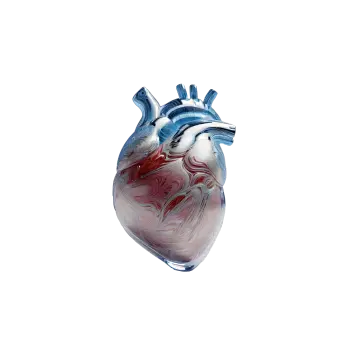Quick version
Mediterranean diet is a diet that focuses on vegetables, fruit, legumes, fish, shellfish, nuts, seeds, whole grain products and vegetable oils. It contains moderate amounts of chicken and eggs and limits red meat, sugar, salt and alcohol. This diet reduces the risk of heart disease, type 2 diabetes, cancer, stroke and obesity, thanks in part to its anti-inflammatory properties.
Healthy components
- Vegetables, fruit and berries
- Legumes and root vegetables
- Fish and shellfish
- Nuts and seeds
- Whole grain products
- Vegetable oils
- Chicken and eggs
- Rice
Foods to limit
- Red meat
- Sugar
- Salt
- Alcohol
The Mediterranean diet supports a healthy lifestyle and reduces inflammation levels, which prevents chronic diseases.
What is the Mediterranean diet?
Mediterranean diet is a diet that mainly consists of vegetables, fruit, berries, legumes, fish and shellfish, nuts, seeds, whole grain products, vegetable oils, as well as moderate amounts of chicken and eggs. It limits the intake of red meat, sugar, salt and alcohol. This diet is known for its health benefits, including reduced risk of cardiovascular disease, type 2 diabetes, certain cancers, stroke and obesity, thanks in part to its anti-inflammatory properties.
The healthy components of the Mediterranean diet
- Vegetables, fruits and berries: These are rich in antioxidants, vitamins and minerals that can help reduce inflammation and improve heart health.
- Legumes and root vegetables: Here are good sources of protein and fiber that help control blood sugar levels and keep the heart healthy.
- Fish and shellfish: Contains omega-3 fatty acids that can help reduce inflammation and protect against heart disease.
- Nuts and seeds: Full of healthy fats, protein and fiber that support heart health and help reduce inflammation. Perfect as a snack and snack.
- Whole grain products (bread, flour and semolina): Rich in fiber which controls blood sugar levels and promotes healthy intestinal flora.
- Vegetable oils and fats: Olive oil is rich in monounsaturated fats and antioxidants that promote heart health.
- Chicken and eggs: Provides high-quality protein without the saturated fats found in red meat.
- Rice: A staple that can be included as part of a balanced diet, especially in whole grain form to maximize nutrient intake.
Foods to limit
- Red meat: Should be eaten in limited amounts due to its higher saturated fat content and link to increased inflammation.
- Sugar: Excessive sugar intake can lead to increased inflammation and risk of chronic diseases.
- Salt: High salt intake can contribute to high blood pressure and other heart-related problems.
- Alcohol: While a moderate intake of red wine can be beneficial, alcohol consumption should be kept low to avoid adverse health effects.
The Mediterranean diet focuses on natural and nutritious foods, which is in line with current recommendations for healthy eating habits. This diet is not only a way to reduce inflammation levels but also a way to improve overall health and well-being. Following a Mediterranean diet can thus be an important part of a long-term strategy to prevent chronic diseases and promote a healthy lifestyle.
























